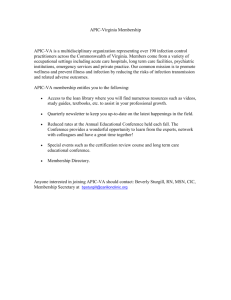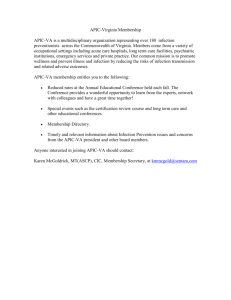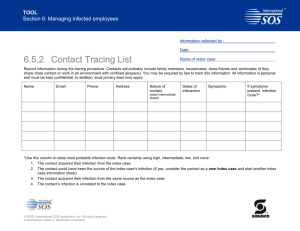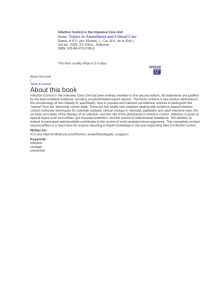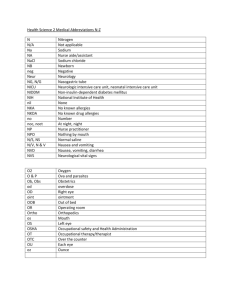Authority and Review of Policy and Procedures (doc)
advertisement
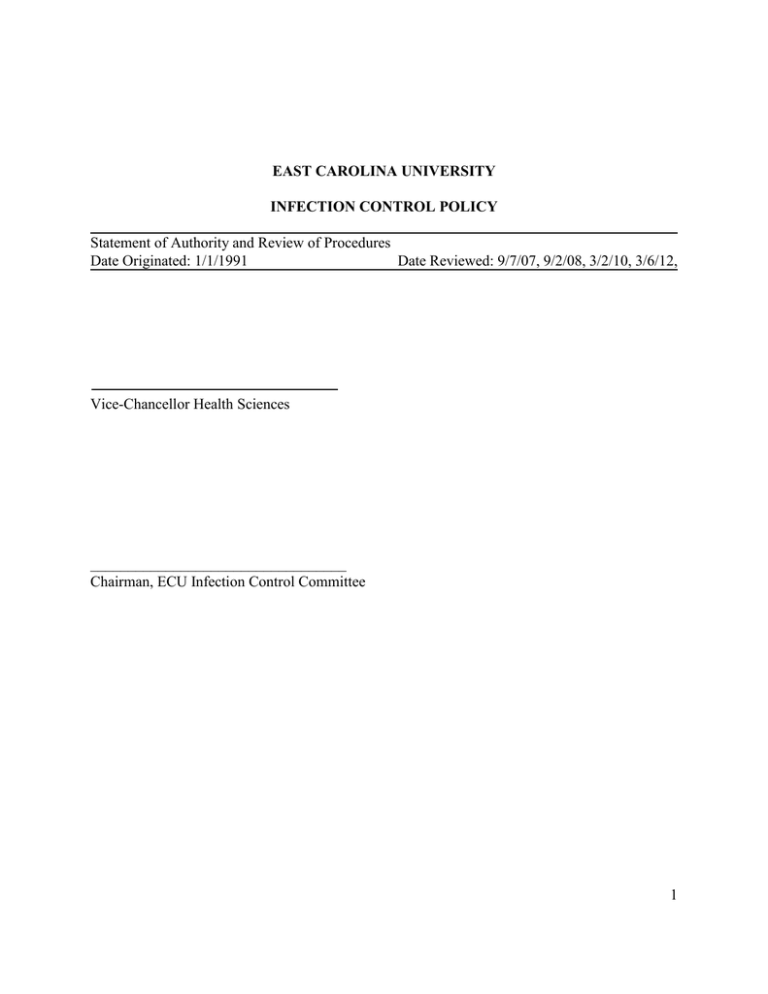
EAST CAROLINA UNIVERSITY INFECTION CONTROL POLICY Statement of Authority and Review of Procedures Date Originated: 1/1/1991 Date Reviewed: 9/7/07, 9/2/08, 3/2/10, 3/6/12, Vice-Chancellor Health Sciences __________________________________ Chairman, ECU Infection Control Committee 1 I. A. This infection Control Manual has been approved by the ECU Infection Control Committee and the Chairman of ECU Infection Control Committee. The Statement of Authority is signed by the Vice-Chancellor for Health Sciences to whom campus-wide responsibility for oversight of Infection Control has been delegated by the Chancellor in 1991. B. This manual is distributed to provide ECU personnel, students and non-employee workers with guidelines and policies regarding infection control in any area within the ECU campus dealing with human blood or other body fluids with particular attention to ECU healthcare facilities. C. This manual contains the departmental policies which individual units of East Carolina campus have developed for use in their area. II. A. North Carolina Administrative Code, (10A NCAC 41A .0206), requires that each health care organization that performs invasive procedures shall implement a written infection control policy, designate a staff member to direct infection control activities and the designated staff member shall have successfully completed a course in infection control approved by the State Health Department. At ECU, the Infection Control Nurse is that staff member. B. North Carolina General Statute 130A-135 requires reporting of communicable diseases to the local County Health Director by the physician who suspects the disease or diagnoses the patient. G-S 130A-137 allows reporting by the medical facility. At the Brody school of Medicine, reporting is delegated to the Infection Control nurse by many clinics. III. A. The ECU Infection Control Committee, through its Chairman, Infection Control Nurse, East and West campus members, are responsible for developing and approving infection control policies and procedures. This includes instituting appropriate control measures when it is necessary for the safety of patients or workers. Such measures may include isolation of patients or geographic areas, cleaning and disinfection, new construction and renovation design review, and evaluation of the patients’ or workers’ environment for possible infection control problems. Other measures include investigation and follow-up of exposure to communicable diseases. B. The departmental chairs and/or supervisors are responsible for ensuring compliance with the Infection Control policies which are applicable to their areas and employees. C. Infection Control will provide guidance and recommendations as to measures needed and will facilitate the process or investigation. Ultimately the individual clinic is responsible for implementation of these requirements. 2
